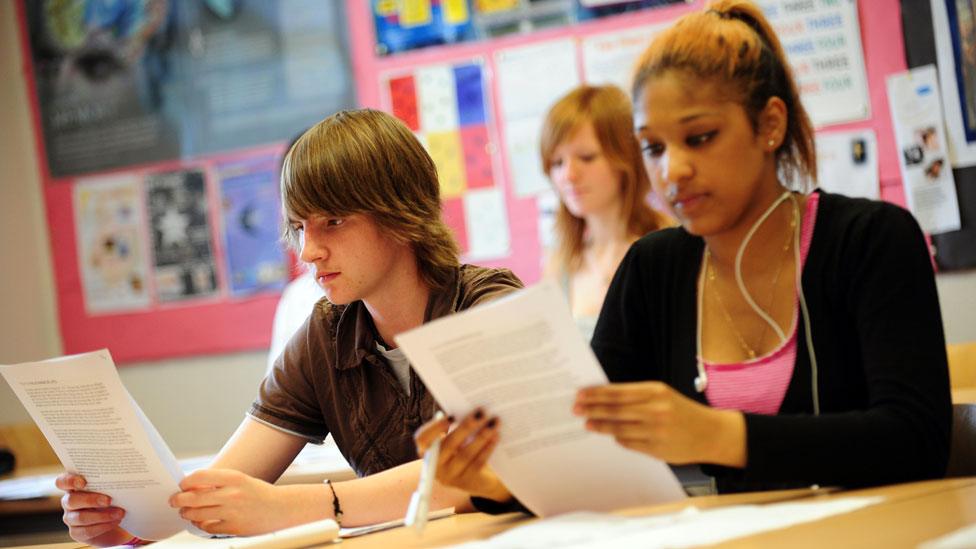Coronavirus: Cambridge University students on no face-to-face lectures
- Published
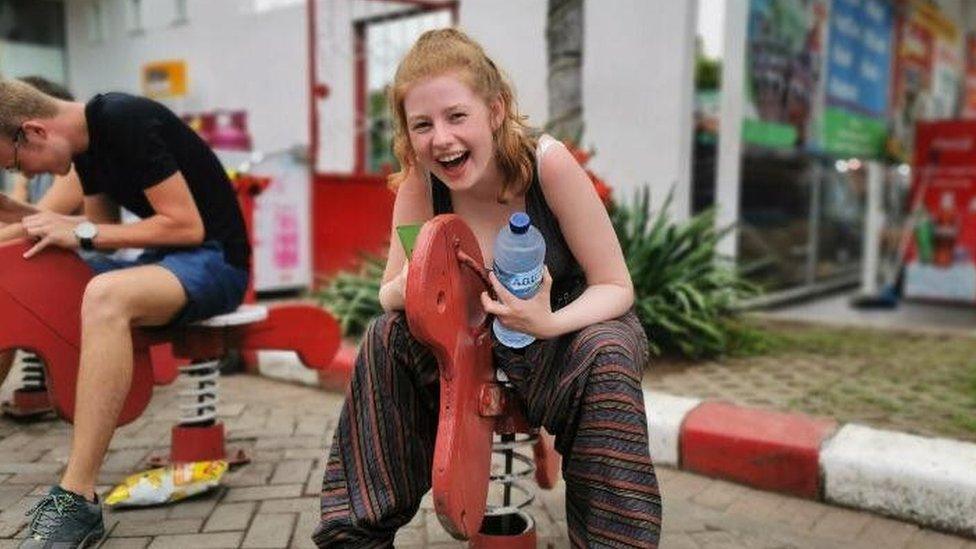
Holly Lambe is due to start at Cambridge University in October, having already been deferred a year
Cambridge University students found out this week that they would be attending virtual lectures with only face-to-face teaching in small groups remaining. Three students told us what the changes could mean for them.
"Obviously you get your hopes up," says Holly Lambe, 18.
"There's kind of that idealistic idea that university is the best years of your life and we'll obviously have a very, very different experience of it this year.
'Out of our control'
Ms Lambe, from Brighton, initially applied for a place at Cambridge in 2019 but the university deferred her entry until this year.
After going travelling and having a "great time on this gap year I'd never planned", she was due to start studying English Literature at Queens' College.
She said she was "really, really disappointed", when she first heard of the university's plans.
"A lot of the people I've been talking to who are in a similar situation are all saying that we're trying to see the positives and trying to find the best way we can deal with this," she said.
"Ultimately it's not really what we were hoping for, but it's kind of out of our control."
Ms Lambe said the decision was "very understandable" and was "in the best interests of the staff who work there, the faculty and the students".
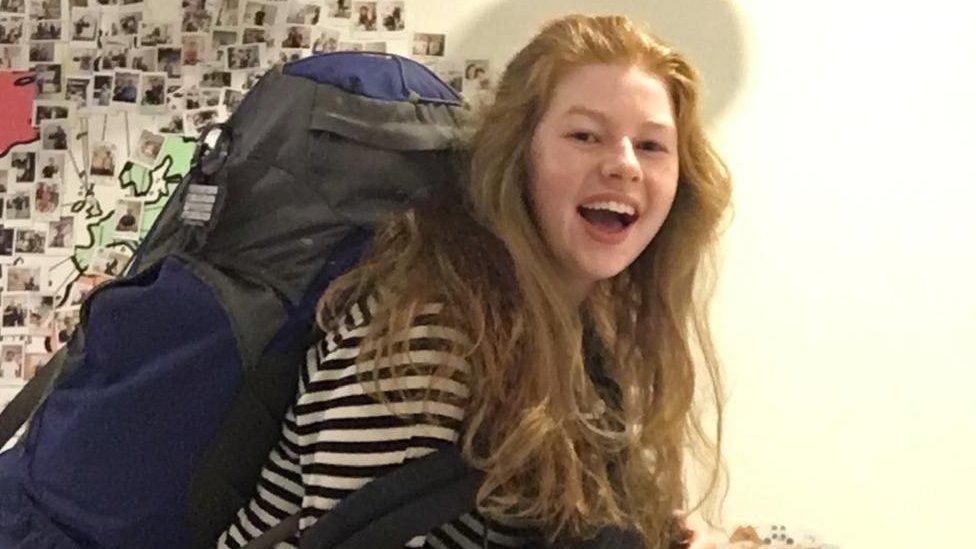
Holly Lambe pictured travelling in Thailand
But she believes the measure will "have such a huge impact socially".
"Lots of people have been saying it could be detrimental to the mental health of the students, which I definitely believe," she said.
"It can feel quite overwhelming now thinking that we could potentially be doing all of this online until next October."
Ms Lambe said that in terms of her academic studies she was "very concerned - I wouldn't necessarily like to be doing all of the readings I'll have to be doing on PDFs on my screen".
Prospective students have been finding ways to get in touch, via video services such as Zoom and through social media.
"We are still socialising and have created our own framework for social interaction even though the university can't necessarily give us one," Ms Lambe said.
'Just a shame'
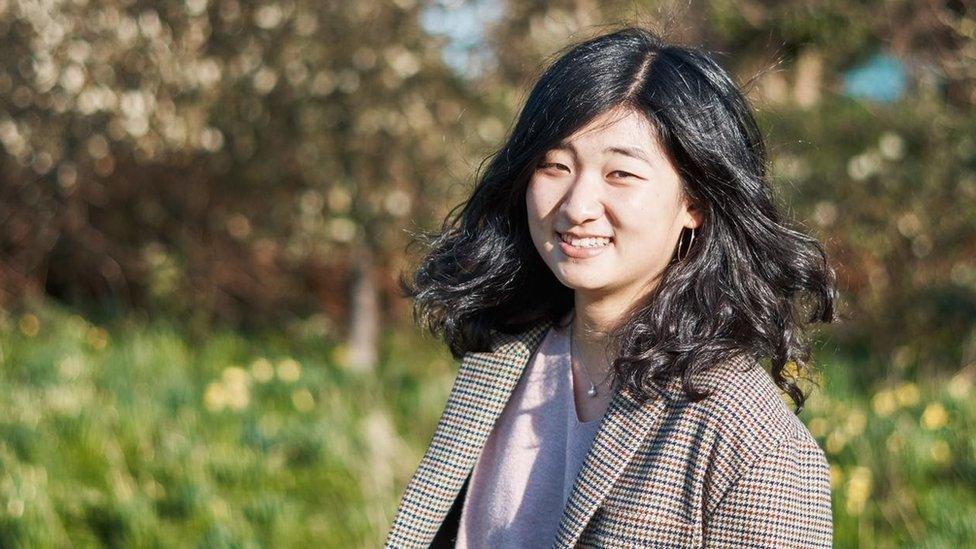
Jungmin Seo hoped the university may review the situation
Second year Jungmin Seo, 20, from north London, said her main worry was the social implications of the new measure.
She said English students such as her "don't have very many contact hours anyway" and found lectures "a good space to meet people from other colleges who also study your subject".
"So it was a very important social opportunity.
"It's just a shame, especially for the incoming freshers, they won't be able to enjoy that properly."
Jesus College student Ms Seo said she hoped the university may review the decision if the coronavirus situation improved, but said she understood why an announcement was necessary at this stage.
"I think this news is probably important for international students or incoming freshers who may want to accept their offer because they need to have a better picture of what the academic year will look like for them."
'Trying to make the best of final year'
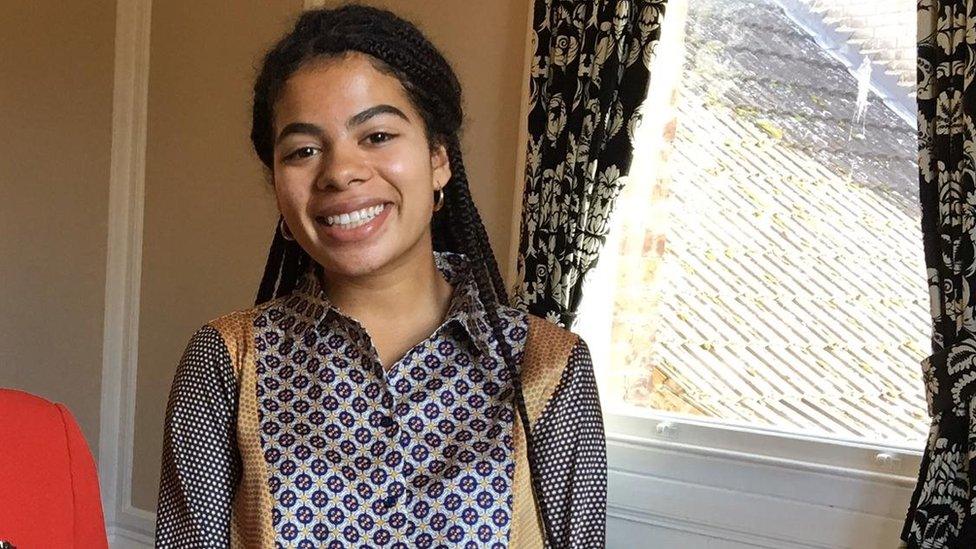
Eliane Thoma-Stemmet, from Leeds, is a second year history student at Emmanuel College
History student Eliane Thoma-Stemmet, 19, is heading into her final year and felt it was a "very responsible decision to move lectures online for the upcoming term".
However, Ms Thoma-Stemmet, a member of Emmanuel College's Student Union committee, said the blanket policy was "a little bit confusing".
While she understood the "obvious dangers of having 200 or more students in a lecture room all together," she said some of her subject's lectures have fewer than 20 people attending.
"Some lectures obviously offer much more scope for social distancing to be imposed than others," she said.
Most of Ms Thoma-Stemmet's contact time next year will be through supervisions and seminars - typically held in smaller numbers and more intimate settings.
The university has said "it may be possible to host smaller teaching groups in person" if they meet social distancing requirements.
But Ms Thoma-Stemmet, from Leeds, said she would "just try to make the best of what we can get out of our final year of university".
If she can, she hopes to move back to Cambridge "even if contact hours are significantly reduced and even if I don't have lectures face-to-face".
"If I can have the Cambridge environment, if I can live surrounded by my friends then I think that would definitely help to make our final year as close to what it would have been as possible".

A SIMPLE GUIDE: How do I protect myself?
AVOIDING CONTACT: The rules on self-isolation and exercise
LOOK-UP TOOL: Check cases in your area
MAPS AND CHARTS: Visual guide to the outbreak

Find BBC News: East of England on Facebook, external, Instagram, external and Twitter, external. If you have a story suggestion email eastofenglandnews@bbc.co.uk, external
- Published19 May 2020
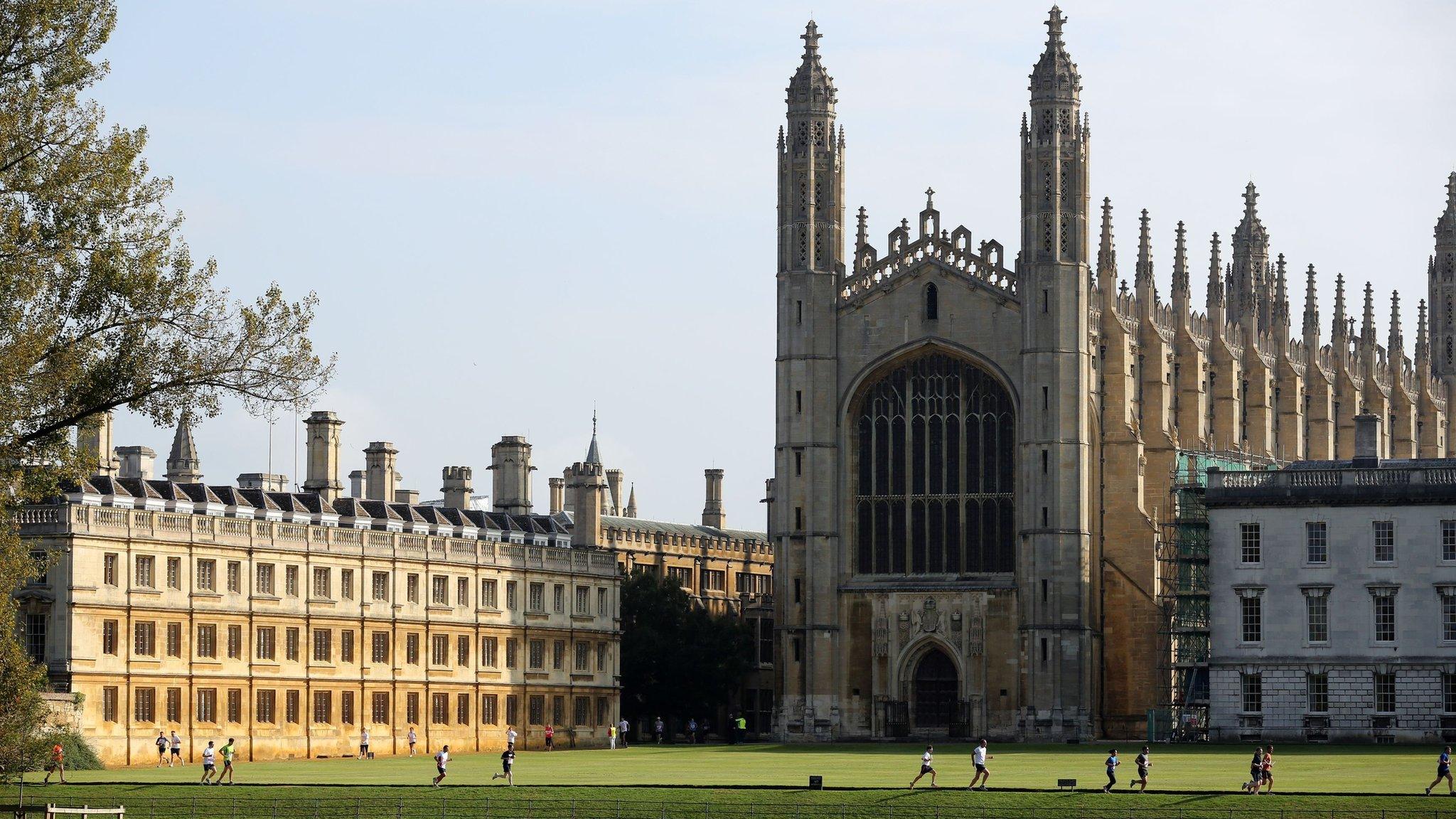
- Published18 May 2020
